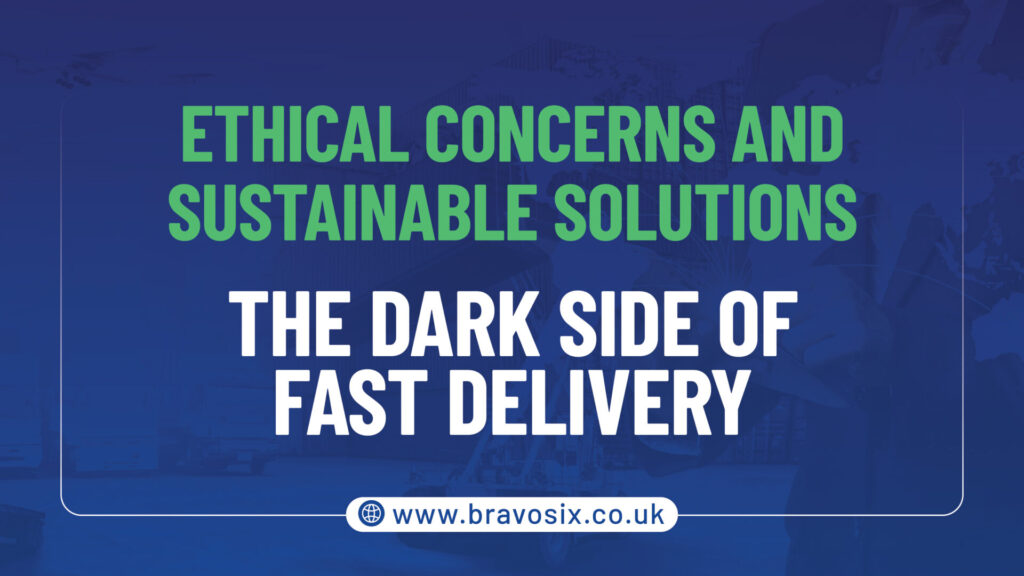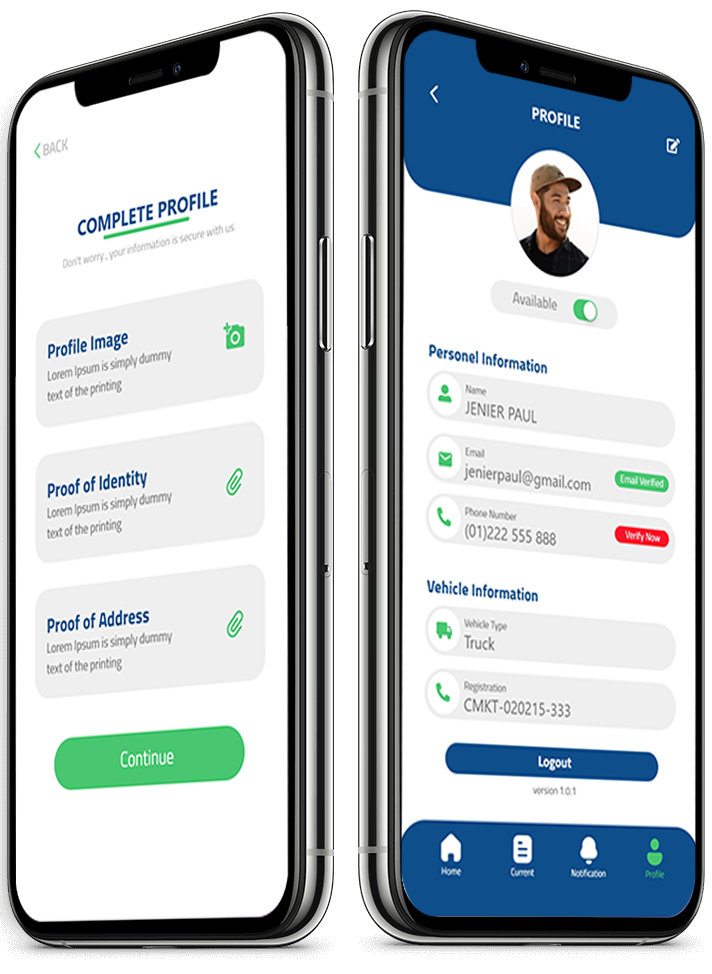Fast delivery services are now a standard part of modern life in a time when instant gratification is expected. Businesses like BravoSix promise same-day delivery of their items to customers in response to the increased demand for expedited delivery. Although there is no denying the convenience this speed affords, there are also several moral questions and sustainability issues that need to be considered. To appropriately negotiate the complexity of fast delivery, businesses and consumers must have a thorough understanding of these issues.
Ethical Concerns in the Race for Speed
There is frequently a darker aspect to the need for quicker delivery times, particularly when it comes to the working circumstances of individuals who operate behind the scenes. There is constant pressure on delivery drivers, warehouse employees, and other logistics staff to fulfill deadlines. Unstable working conditions, low pay, and long hours might result from this pressure. The welfare of employees may occasionally be neglected in the rush to deliver prompt service, posing grave moral concerns regarding justice and labor rights.
For example, the need for a speedy turnaround may lead to inflated expectations for performance. Employees may have to handle an excessive amount of shipments in a short amount of time, frequently without enough breaks or assistance. Stress, both mental and physical, can result from this, which can impact both safety and general job satisfaction.
Environmental Impact of Fast Delivery
The environmental implications of fast delivery are another pressing concern. The logistics of same-day delivery typically involve expedited transportation methods, which can significantly increase carbon emissions. From additional delivery vehicles on the road to expedited air transport, the environmental footprint of getting packages to customers quickly is substantial.
Moreover, the increased frequency of deliveries often means more packaging materials, which can contribute to waste. Single-use packaging and excessive wrapping are common in fast delivery services, exacerbating the problem of landfill overflow. The environmental costs of maintaining a quick delivery model must be weighed against the benefits, highlighting the need for more sustainable practices.
Sustainable Solutions for Fast Delivery
It takes creative thinking and a dedication to sustainability to address the moral and environmental concerns raised by quick delivery. The following tactics can assist in lessening these difficulties:
1. Improving Working Conditions
By guaranteeing that delivery staff receive fair pay, appropriate rest times, and suitable working hours, businesses may embrace fair labor practices. Enhancing job satisfaction and lowering stress at work can also be achieved by making investments in support and training. Businesses may improve their standing and create a more moral workplace by putting the welfare of their workers first.
2. Adopting Green Logistics
Businesses can invest in green logistics solutions to reduce their impact on the environment. This entails employing fuel-efficient delivery routes, switching to electric or hybrid cars, and setting up energy-saving procedures at warehouses. Reducing waste can also be achieved by encouraging recycling and looking into alternate packaging materials.
3. Encouraging Consolidated Deliveries
Encouraging consolidated delivery is one strategy to reduce packaging waste and emissions. By combining several orders into a single delivery, this method can cut down on the number of trips required and the total amount of carbon emissions. To further reduce their influence on the environment, businesses might offer incentives to consumers who select condensed delivery choices or arrange deliveries during off-peak hours.
4. Supporting Local Businesses
Businesses can lower the distance that goods must travel and thereby minimize transportation emissions by procuring products locally. In addition to being good for the environment, supporting regional manufacturers and suppliers also boosts local economies and communities.
5. Consumer Awareness and Choice
Making customers aware of the moral and environmental costs of quick delivery can encourage more conscientious buying. Businesses can promote a change in consumer behavior towards more responsible purchasing by emphasizing sustainable solutions and urging consumers to think about the bigger picture when making decisions.
The Path Forward
BravoSix and other fast delivery services provide unmatched convenience, but there are ethical and environmental issues that need to be addressed as well. Businesses can lessen the negative effects of quick delivery by adopting sustainable processes and putting employee welfare first. Customers are also very important in this process because they may create good change by making educated decisions and supporting sustainable options.
A more moral and sustainable logistics sector will depend on finding a way to balance responsibility and speed as the need for quick delivery grows. It is possible to minimize the negative aspects of quick delivery while still enjoying its benefits through teamwork and creative thinking.






